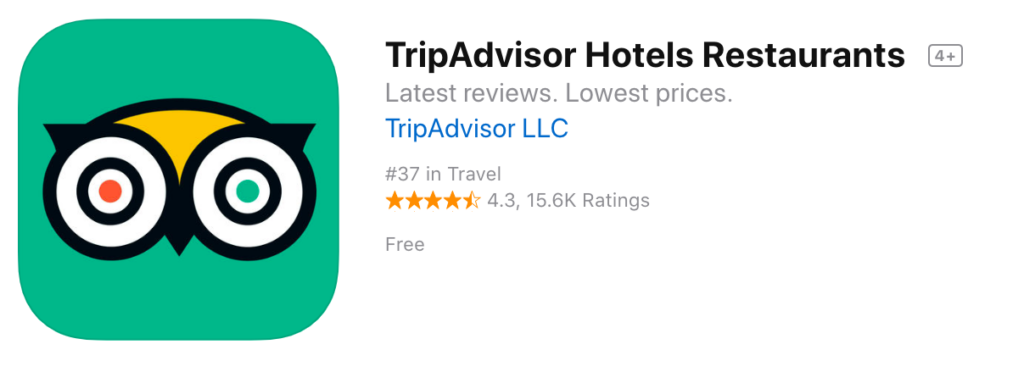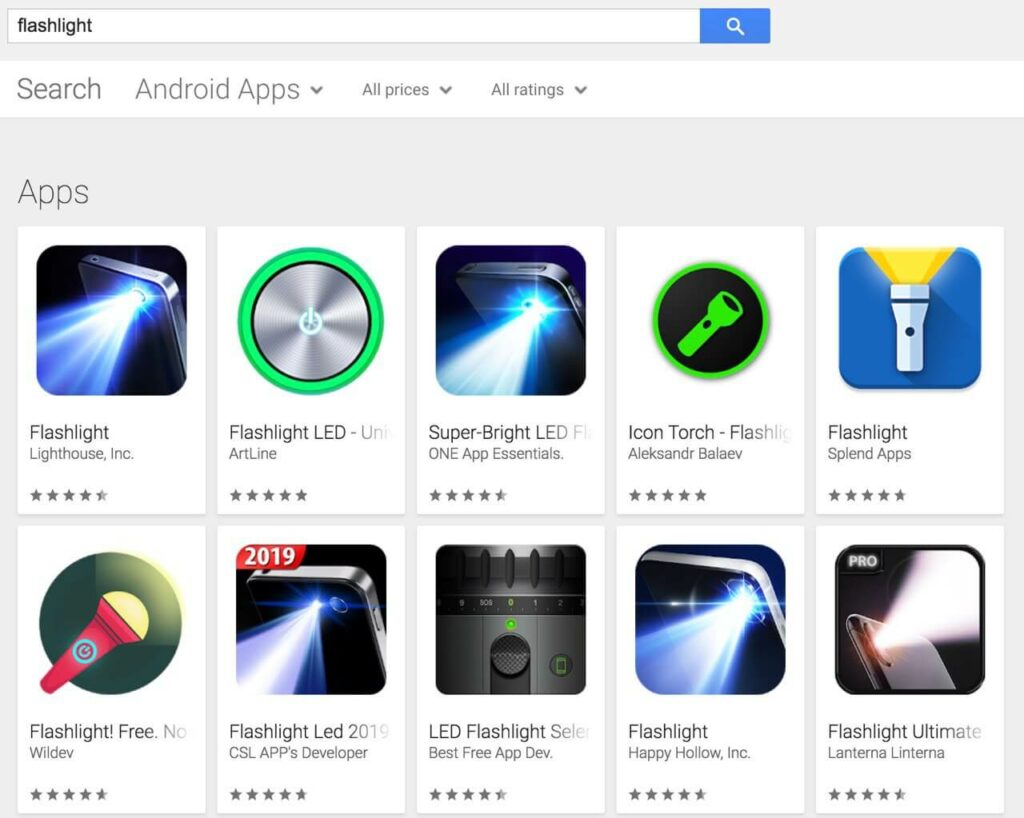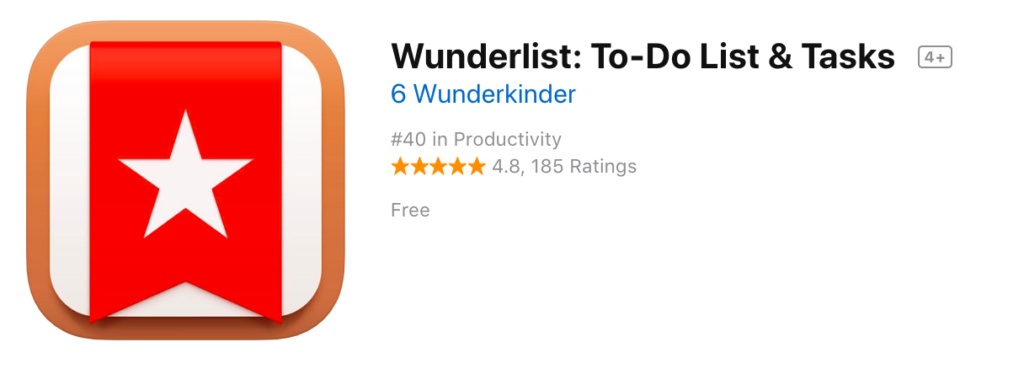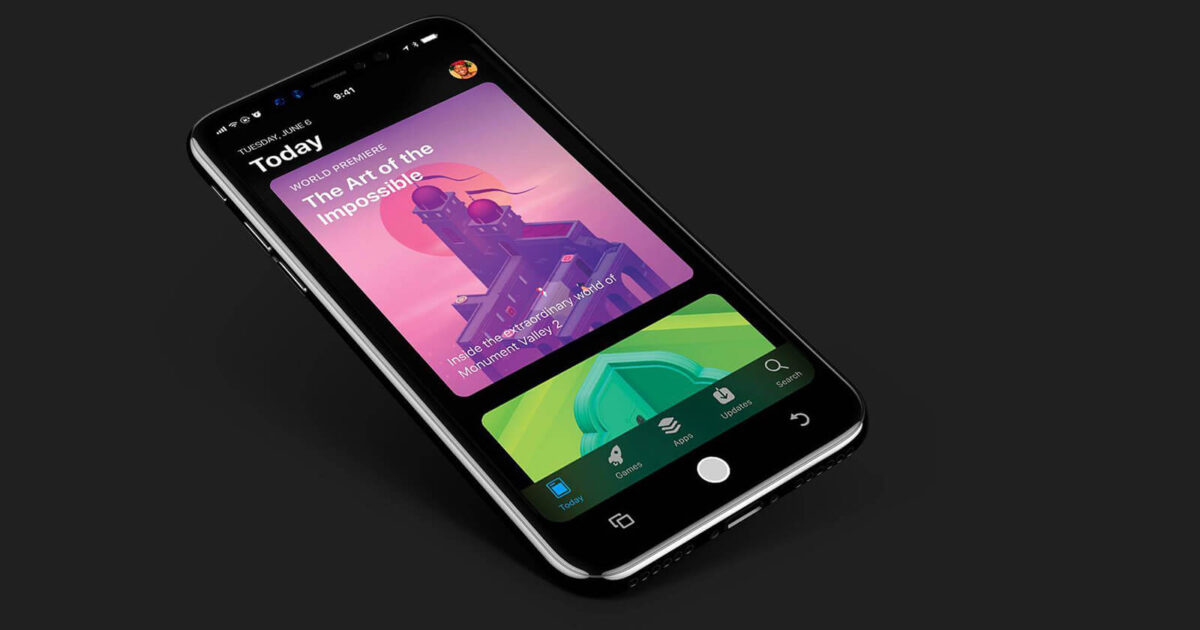Some entrepreneurs think that app development is the most important part of creating a successful startup. But… Reality might surprise in an unpleasant way when they forget about app marketing. Each app store’s shelves are stuffed with lots of various applications. So how to make your app get found in that crowd?
Start from the ASO. If you’ve read our previous article, you already know about it. If not, do it!
Here we’ll focus on the app title optimization. It makes the first impression on a user and in combination with keywords is considered an extremely important ASO factor by search algorithms of app stores.
They say around 50% of applications get found by potential users while using search engines or app store rankings. To hit the highest ranks, improve the app store visibility and boost app downloads make sure to use the following tips while creating the app title.
Length hacks
Before compiling the app name the first thing to consider is whether there are some limitations.
For Apple’s store it all started with 255 characters allowed in the title, eventually in 2016 got trimmed to 50… and finally—since 2017 you can use only 30 characters in your app name. But at all times people knew that only the first 25 characters appear in the search results.
With Google Play the situation was a bit opposite: at some point, it was only possible to use 30 characters, now you can get used of 50 characters in the title.
The shown restrictions not only improve the store’s user experience but also prevent keyword stuffing which directly influences the title’s weight on the algorithm.
So to fit in the major app stores make sure to stick to the title’s length limitations:
- Apple App Store: 30 characters;
- Google Play Market: 50 characters.
Let’s see how the same app is displayed in the major application stores. TripAdvisor in App Store:

And in Google Play:

Some studies show that the most popular apps have a title that doesn’t exceed 26 characters and contain less than 5 words. More to that, the majority of such apps have 1-2 words in the app name. There’s a reason: they are easy to remember, pronounce, search and fully seen on any screens.
Keywords hacks
According to recent studies, titles with keywords increase app rankings by at least 10%. Believe me, it is worth it! Your deal here is to place the most important keywords. Especially the ones with the heaviest search traffic and the lowest competition.
Spend some time to allocate the best keywords for your app. Research the target audience and competitors to compile the list of the most appropriate words that explain what your app does.
App stores usually allow searching by app name, company or keywords. People know the names of app or company pretty rarely, but they definitely know what they search for.
There is a certain difference between the Apple App Store and Google Play Market and the way they work with keywords.
Apple gives a 100-characters keyword field that users won’t see. So you are free to place the most relevant keywords there without the need to repeat any of them in the title—Apple takes only one keyword throughout your whole app presence.
As of recently, iOS developers have a special subtitle field of 30 characters that extend the app title.
In the case of Google Play, there is no special keyword field. So Google scans the whole app description from top to bottom for the relevant keywords. The ones on the top are the most important. Guess, what’s at the top of the page? Title. More to that, the more frequently you use the keywords from the title in the description part the better for the search rankings in this store.
Smart keyword placement inside the app title itself means a lot. They say including the most valuable keywords even before the brand name might change the whole situation. Taking into account the fact that stores usually show a short part of the name on some screens, using 2-3 identifying keywords at the very beginning of the title is a great decision.
Other Hacks
The title length and keywords inside of it mean a lot, but it’s not the only factor that influences the app store’s visibility. The ideal title should also be:
-
Understandable
Let your audience understand instantly what your app does and how they can benefit from it. Don’t try to be too smart by choosing specific jargon words. The simpler the better. The most popular apps are easy to spell, pronounce and pleasant to listen to. Having any of these characteristics will increase the chances of your app to be recommended.
-
Unique
It might be tempting to decide on the name that corresponds with other well-known apps and thus get more audience. Although it might result in facing issues dealing with copyright laws. Some relevant databases (for example, the Global Brand Database) can help you not to get into trouble. They can check whether the name you are interested in is available for use.
Another reason for choosing a unique name is sticking to your initial goal. Which is to create an app that can stand out among competitors without making users confused and download the wrong app.
How many resemblances do you see in the screenshot above?

Similar pictures appear for lots of words placed in titles. To stand out among your competitors your app name should consist of uncommon words or word combinations:
- Combination of two words: Facebook
- Unusual merge of several words: Pinterest
- Affixation: Spotify
- Reversed naming: Aneres
- Creation of new word: Odeo
One of the important factors here is what words to choose as a foundation for your app name.
-
Unforgettable
Along with uniqueness, your app title should carry a certain message. Without any doubt, the main point here is functionality. Your users want to know what your app does from first sight. However, there are too many such apps for sure. Adding specific connotation will give you many benefits.
So be sure to combine functionality and flair in your title. This what will make your app name strong and unforgettable in the eyes of a random app store visitor.
Are you aware of Wunderlist? Will you forget it?

-
Localized
The more global your app the more audience it gets. Simple translation into other languages might not work. A certain adaptation for each region realities will serve well for your app popularity. Although some hidden challenges might be at stake. You may find lots of funny stories about marketing failures while trying to localize a product for some markets. Even if now you’re not planning to go global you still want to think about it before the time comes to broaden your market base.
-
Updated
As you might have already noticed, app stores rules change over time resulting in the need to change the keyword filling, etc. The world is constantly changing. There are hundreds of new apps announced every day. The app title should also be up-to-date in order to meet the changing trends and requirements.
Your goal is to keep your app title and description current with the functionality improvements and market tendencies. Thoughtful analytics of previous results will help you to better optimize your ASO strategy.
However too often updates may badly influence the search rankings and confuse your audience.
Top 3 AI Tools to Improve App Visibility: Enhance Your App’s Reach and Engagement
If you don’t use AI for App Store optimization, you’re losing a lot. With the help of these tools, you can do everything from keyword research to creating engaging app descriptions and tracking detailed analytics. Let’s review 4 best AI tools for improving your app store visibility.
Data AI is a tool for mobile market data and app insights that boasts an exclusive scoring system for comprehensive measurement of app functionality. With the help of Data AI, you can discover how your app is performing among your competitors with a unique Mobile Performance Score (MPS).
Data AI is not only about analysis. It covers the entire app lifecycle, from discovering growth opportunities to analyzing competitors, discovering effective monetization strategies, and maximizing the mobile apps’ revenue potential.
Pricing: Freemium model. Also, you can request a demo.
App Tweak is an App Store marketing and intelligence platform for optimizing your app’s organic and paid performance. With App Tweak, you can:
- Understand what keywords drive downloads to your app
- Monitor keyword rankings and identify the most relevant for your app keywords
- Improve app visibility
- Spy on competitors’ metadata updates and A/B tests
- Discover new opportunities to get featured
- Monitor and report on ASO impact
Pricing: from $83/month. Also, there’s a 7-day free trial
App Follow is a tool for understanding and enhancing your app reputation. It lets you easily analyze and manage app store reviews and uncover insights that will help you improve your app performance. It combines ASO data with user insights, which makes it a powerful tool for analyzing a general picture of how your app performs. With App Follow, you can:
- Improve app rating and ranking
- Increase app visibility by discovering the best-performing keywords
- Increase organic app downloads
- Monitor featuring events, conversion rates, and top charts data to stay ahead of your competitors
- Find out your competitive advantages through user sentiments and use them for your app page and screenshots to attract a larger audience
Pricing: starts at $179 per month. A free version is available for small teams and hobby projects.
Conclusion
Your app title plays a big role in improving the App Store and Google Play visibility, the number of downloads the app gets and how much revenue for your business it brings. Use the above tips for creating a name that will serve your goals long-term!






